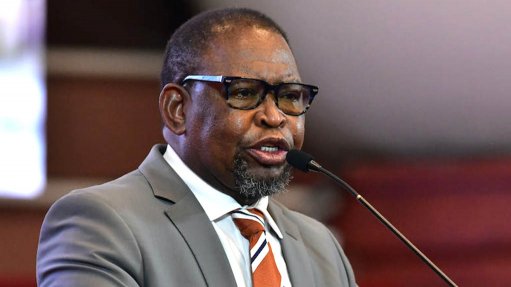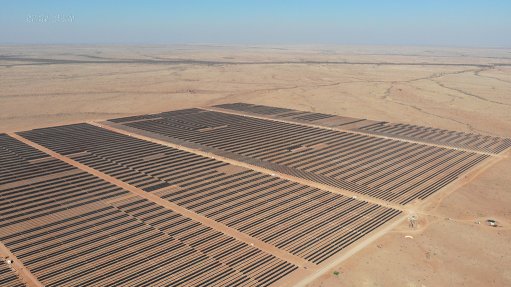SA researchers, agencies mulling national nuclear network
The Potchefstroom campus of the North- West University (NWU) recently hosted a workshop to plan the creation of a network for nuclear education, science and technology in South Africa. The creation of such a network would bring this country into line with many other civil nuclear energy and technology countries and create a structure that would be able to interface directly with the International Atomic Energy Agency (IAEA).
“At NWU, working with Necsa [South African Nuclear Energy Corporation], [national electricity utility] Eskom and other universities, we’ve realised we’re all working in silos, sometimes very small silos with only one or two people,” explains NWU programme manager: nuclear engineering Dr Anthonie Cilliers. “So we’ve decided to make a collaborative effort, to bring all [nuclear] researchers and institutions together, to work together, to get critical mass. We’re too small to work apart. This [last] week we’re putting the formal framework in place.”
There are three groups of “stakeholders” involved: universities, industry, Necsa and the National Nuclear Regulator (NNR) and, as external observers and advisers, the South African Department of Energy and the IAEA. The aim is to have the programme officially endorsed by the IAEA by the end of next year, but for it to start functioning early next year.
“What we want to do is get the country network going,” he affirms. Once it is endorsed by the IAEA, it will be able to plug into that organisation’s African Regional Cooperative Agreement Nuclear Educational, Science and Technology network, better known as AFRA-NEST. There are equivalent organisations on other continents, which link up to form a global network. “This will unlock facilities and expertise, continentwide and worldwide.”
In his presentation to the workshop, Cilliers raised a number of points. These included: how could a future nuclear energy programme contribute to larger national goals? How could it affect the broader needs of the country? “We want energy security, optimal utilisation of resources and to mitigate climate change,” he pointed out. “We need, in future, not only to look at the construction of nuclear plants but also at the design, development and building of energy networks.” The long-term aim would be to achieve nuclear self-reliance with world-class technology and capabilities.
He noted that the need was for a safe nuclear sector that would have minimal environmental impact. It would also encourage the development of science and technology and of science and technology education as well. Consequently, the country needed to strengthen its nuclear capacity, accelerate the provision of nuclear education, grow skills and encourage new entrants into the nuclear industry (thereby helping deal with the inequalities from the past).
“We must remember we’re one of the oldest nuclear technology countries,” he highlighted. Citing the IAEA’s “South Africa Country Programme Framework 2011-2016” (published in 2012), he listed the country’s main institutions active in the nuclear sector. These are Necsa, which owns and operates the Safari-1 research reactor, the NNR, the Universities of Cape Town, Johannesburg, Pretoria, Stellenbosch, the Witwatersrand and NWU. Also involved, but to a lesser degree, are the Nelson Mandela Metropolitan University and the Universities of KwaZulu-Natal, Limpopo and the Western Cape. These universities often do not duplicate their activities. NWU has, for example, a very strong focus on nuclear engineering, with modules in undergraduate degrees and dedicated postgraduate degrees. The University of the Witwatersrand, on the other hand, has a BSc degree in reactor physics and engineering (with the options of a honours degree as well). And then, of course, there is Eskom, which owns and operates the country’s only nuclear power station, the two reactor plant at Koeberg, near Cape Town.
Represented at the workshop were Necsa, the NNR, the IAEA and the NWU, the Universities of the Witwatersrand, Pretoria and Johannesburg and the Nelson Mandela Metropolitan University. (This does not mean that any other universities were or will be excluded.) Industry was represented by the Nuclear Industries Association of South Africa.
Comments
Press Office
Announcements
What's On
Subscribe to improve your user experience...
Option 1 (equivalent of R125 a month):
Receive a weekly copy of Creamer Media's Engineering News & Mining Weekly magazine
(print copy for those in South Africa and e-magazine for those outside of South Africa)
Receive daily email newsletters
Access to full search results
Access archive of magazine back copies
Access to Projects in Progress
Access to ONE Research Report of your choice in PDF format
Option 2 (equivalent of R375 a month):
All benefits from Option 1
PLUS
Access to Creamer Media's Research Channel Africa for ALL Research Reports, in PDF format, on various industrial and mining sectors
including Electricity; Water; Energy Transition; Hydrogen; Roads, Rail and Ports; Coal; Gold; Platinum; Battery Metals; etc.
Already a subscriber?
Forgotten your password?
Receive weekly copy of Creamer Media's Engineering News & Mining Weekly magazine (print copy for those in South Africa and e-magazine for those outside of South Africa)
➕
Recieve daily email newsletters
➕
Access to full search results
➕
Access archive of magazine back copies
➕
Access to Projects in Progress
➕
Access to ONE Research Report of your choice in PDF format
RESEARCH CHANNEL AFRICA
R4500 (equivalent of R375 a month)
SUBSCRIBEAll benefits from Option 1
➕
Access to Creamer Media's Research Channel Africa for ALL Research Reports on various industrial and mining sectors, in PDF format, including on:
Electricity
➕
Water
➕
Energy Transition
➕
Hydrogen
➕
Roads, Rail and Ports
➕
Coal
➕
Gold
➕
Platinum
➕
Battery Metals
➕
etc.
Receive all benefits from Option 1 or Option 2 delivered to numerous people at your company
➕
Multiple User names and Passwords for simultaneous log-ins
➕
Intranet integration access to all in your organisation


















